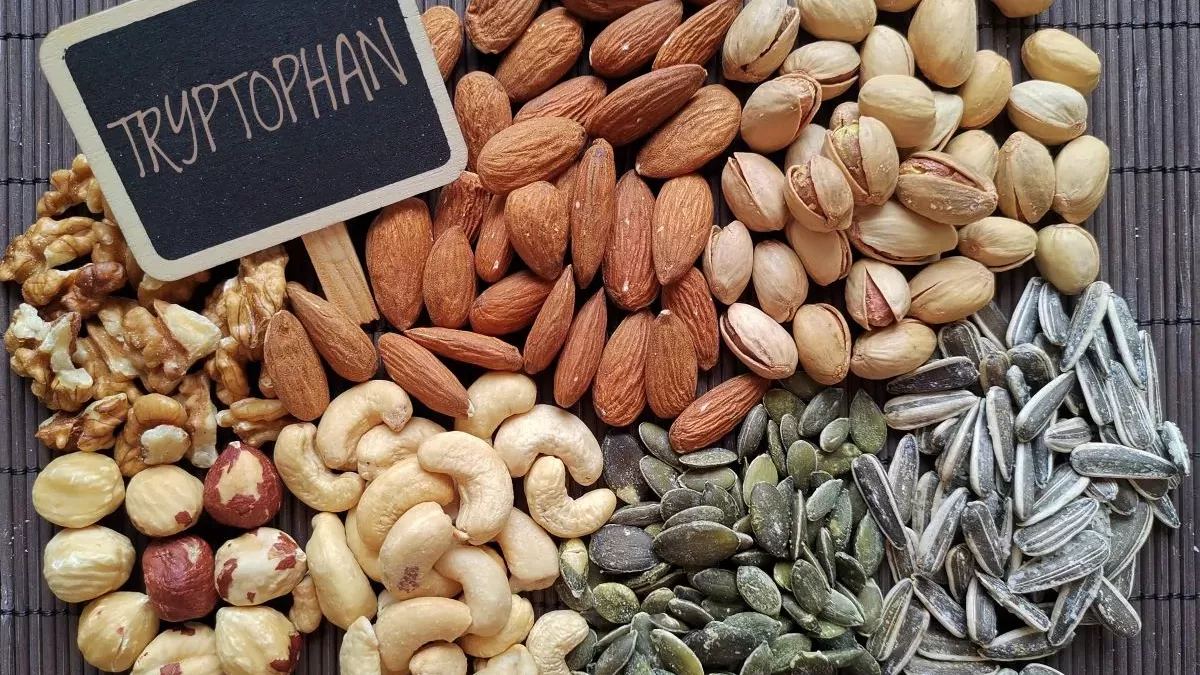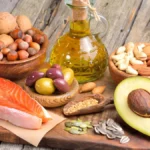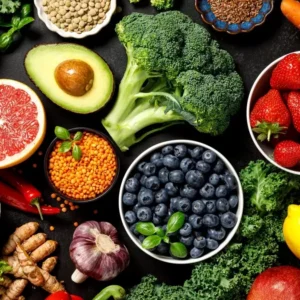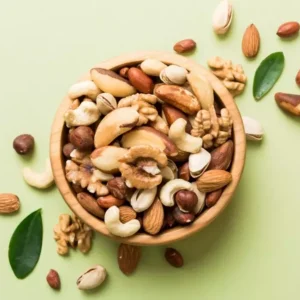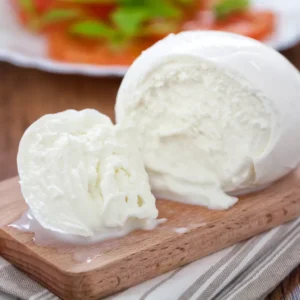Verified on 12/19/2023 by PasseportSanté
Tryptophan is an essential amino acid for the body, it is also a constituent of proteins. It is one of the precursors of serotonin and therefore helps promote good sleep and fight against depressive disorders. Tryptophan is mainly found in products of plant origin because animals cannot synthesize it.
Characteristics of tryptophan:
- essential amino acid, precursor of serotonin;
- promotes good sleep and helps fight depressive disorders;
- food supplements based on tryptophan are controversial;
- a deficiency in dietary tryptophan can promote mood disorders.
What are the benefits of tryptophan?
Tryptophan, serotonin and sleep
Tryptophan is involved in the synthesis of serotonin which is responsible for mood but also makes it easier to fall asleep.
Anti-depressant
By helping with the synthesis of serotonin, tryptophan has been shown to have a positive effect in the treatment of depression.
 Receive every day
Receive every day
advice from our experts
to take care of you

Foods rich in tryptophan
The nutritional composition table of foods does not detail the precise tryptophan contents. However, we can note that the foods below are the richest in tryptophan:
- complete rice ;
- meat and poultry ;
- dairy products ;
- eggs;
- soy protein;
- peanuts ;
- poisson ;
- legumes;
- chocolat ;
- banana ;
- almonds ;
- cashew nuts ;
- yeast.
Current recommendations indicate that 4 mg of tryptophan should be consumed per kg of body weight per day. That is an average intake of 200 mg of tryptophan per day for an adult weighing 50 kg.
Tryptophan contraindications and reviews
Tryptophan in food supplements is contraindicated in case of allergy to one of the components. Scientific opinions differ greatly on the subject of tryptophan supplementation, which may be indicated to treat various conditions:
- bipolar disorders ;
- depression ;
- difficult sleep;
- addiction ;
- hyperactivity;
- etc.
Indeed, this type of long-term medication could cause neurological and circulatory risks (vasoconstriction). As a first intention, it is therefore strongly recommended to increase tryptophan intake naturally and through diet. In all cases, seek the advice of your doctor before considering tryptophan supplementation.
Consequence of tryptophan deficiency
Some studies have shown that there may be a link between depression and a diet low in tryptophan.
Is excess dietary tryptophan a health hazard?
To date, there are no scientific studies concerning excess dietary tryptophan in humans. However, in animals, insulin resistance has been observed when excessive tryptophan consumption occurs. The AFFSSA, as a precaution, maintains the threshold limit of 220 mg.d of tryptophan in food supplements.
Interactions with sedatives and other medications
Sedatives and certain medications used to treat depression interact very strongly with tryptophan. We therefore recommend seeking systematic medical advice before taking any self-medication.
Chemical properties
The molecular formula of tryptophan is C11H12N2O2, its molar mass is 204.2252 g/mol and its decomposition temperature is 250°C. Tryptophan is one of the so-called essential amino acids for the human body. Like phenylalanine, it is a nonpolar aromatic amino acid.
Tryptophan has two fundamental roles, on the one hand it enters into the composition of proteins and RNA and on the other hand it is the precursor of substances essential for the human body: serotonin, melatonin, etc.
Nutrient History
At the end of the 1980s, tryptophan was massively marketed in the United States in the form of food supplements. The tryptophan in question is then synthesized from specific bacteria. This marketing will give rise to an epidemic of eosinophilia-myalgia syndrome, a muscular disease entirely induced by the massive intake of this form of tryptophan.
Following these dramatic episodes which killed and disabled thousands of people, tryptophan was withdrawn from the market for 15 years.
Recently, food supplements based on tryptophan deemed harmless have been put back on the global market. They are mainly used to treat bipolar, sleep, depressive, or even hyperactivity disorders.
Our dietitian’s opinion
Tryptophan plays many roles in the body. It is essential for the synthesis of serotonin and melatonin, respectively involved in the regulation of mood and sleep. For people who have problems falling asleep and/or staying asleep, we recommend focusing on foods rich in tryptophan in the second part of the day. Thus, eggs, fish, dairy products, whole grains, bananas, chocolate and oilseeds are valuable allies at snack time and dinner to promote quality sleep!

Dietitian Nutritionist
September 2017

Dietitian Nutritionist
December 19, 2023, at 4:42 p.m.
96% Readers found this article helpful And you ?
Was this article useful to you?



